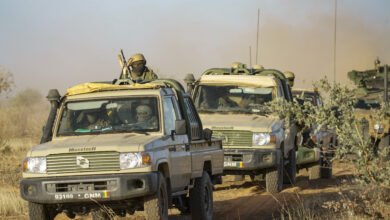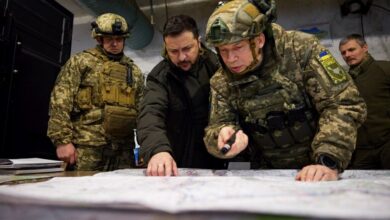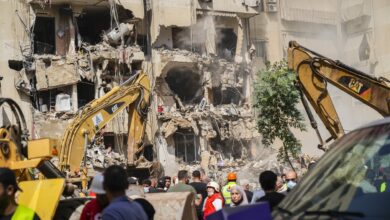UN ‘deeply concerned’ about rising intercommunal violence in Mali, OHCHR says
The United Nations said it was “deeply concerned” about a surge in intercommunal violence in central Mali that has killed hundreds of people since the start of the year.
The U.N. peacekeeping mission in the country, Minusma, says at least 289 civilians have been killed in almost 100 documented incidents, the vast majority – some 77 percent – in the Mopti region.
The violence highlights the fragile security situation in the West African nation as it prepares to hold presidential elections on July 29.
“In recent weeks, U.N. human rights staff in the country have documented an alarming trend of civilians being driven from their homes, either after being directly targeted themselves, because of the community they belong to, or after deadly attacks on members of their community in neighbouring villages,” wrote the spokesperson for the U.N. High Commissioner for Human Rights (OHCHR) in a statement on Tuesday, July 17.
Violence has increased over the past three years in central Mali between nomadic Fulani herders and Bambara and Dogon farmers, sparked by accusations of Fulani grazing cattle on Dogon land and disputes over access to land and water.
Minusma said it has recently documented an escalation of attacks allegedly carried out by armed Dozos hunters and militias, who are linked to the Dogon ethnic group, against Fulani herders.
“These attacks are said to be motivated by a desire to root out individuals linked to the violent extremist group Jama’at nusrat al-Islam wal Muslimeen (JNIM),” the OHCHR said, adding: “In reality, they have increasingly been indiscriminately targeting members of the Fulani community.”
JNIM is a fusion of three Malian jihadist groups linked to al-Qaeda. Also known as the Group to Support Islam and Muslims (GSIM), the group has been behind several high profile attacks against domestic and foreign forces since forming last year.
JNIM claimed responsibility for a bomb and gun attack on the headquarters of the G5 Sahel Joint Force in Sevare in the Mopti region of Mali in June.
The Dogon and Bambara communities have also been targeted by JNIM and Fulani militias, said the OHCHR.
“Between 7 and 10 July alone, Minusma documented five attacks on civilians from these communities in the Djenné and Koro areas, resulting in at least seven deaths,” the statement said. “In most cases, the victims were killed while out farming.”
The attacks documented by Minusma raise concerns they are part of a deliberate attempt to intimidate farmers and undermine the communities’ food security, the OHCHR said.
It urged the Mali government to take measures to “prevent further grave violations and abuses of human rights in the region, including those committed by government forces.”
Islamic extremists linked to al-Qaeda took control of the desert north of Mali in early 2012, exploiting a Taureg separatist uprising. France began a military intervention the next year that evolved into the current Operation Barkhane deployment with a mandate for counter-terror operations across the Sahel region.
Tensions and violence have intensified in the troubled area over the past three years with clashes between Fulani herdsmen and farmers from the Bambara and Dogon ethnic groups who accuse the pastoralists of colluding with jihadists.
In June, the U.N. Security Council renewed Minusma’s peacekeeping mission in Mali for another year, but warned that Mali must make “substantial progress on the country’s peace process.”
The first troops from a 100-member U.K. contingent to be deployed in Gao alongside French forces arrived in the region on June 14. British forces will operate three CH-47 Chinook heavy transport helicopters to assist the French operation, but British military personnel will not be involved in combat operations, the government said.
Decades after the end of empire, Portugal’s military returns to Africa in a new role
With reporting from AFP












